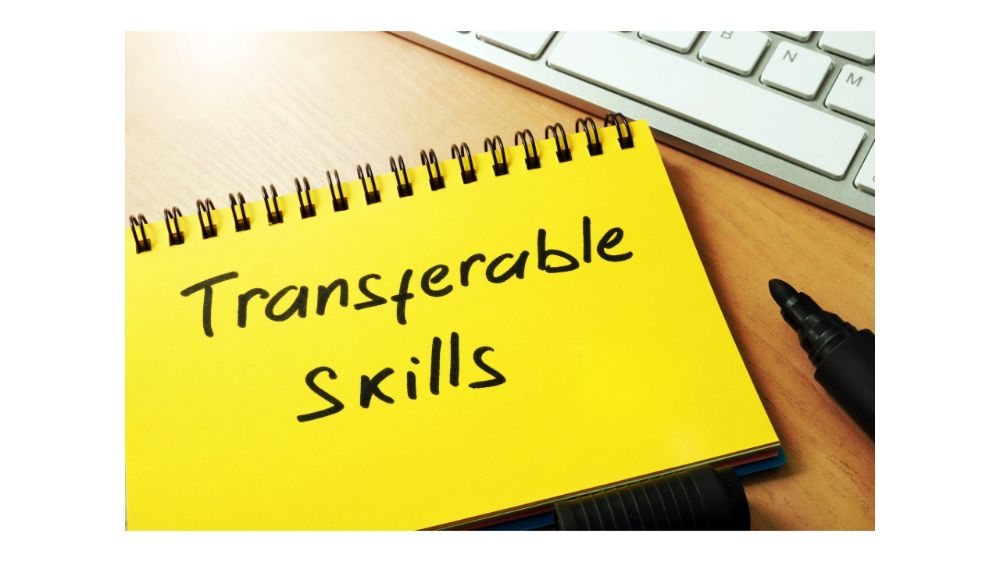Identifying and Leveraging Transferable Skills in Job Applications

Are you discounting yourself for a particular job because you think you don't have the skills? Is it possible that some of these advertised skills may overlap with some of your transferable skills?
Not all skills are tied exclusively to a specific job or industry. Transferable skills, also known as soft skills or portable skills, are abilities that can be applied across various roles and industries. Identifying and leveraging your transferable skills can significantly enhance your job application and increase your chances of success. In this article, we will explore strategies to identify your transferable skills and effectively leverage them during the job application process.
Understand Transferable Skills:
Transferable skills are the abilities and qualities that you have acquired through various experiences, such as education, previous jobs, volunteering, or personal projects. These skills are not limited to a particular field and can be adaptable and valuable in different contexts. Common transferable skills include communication, leadership, problem-solving, teamwork, adaptability, time management, and critical thinking.
Reflect on Your Experiences:
Start by reflecting on your past experiences, both professional and personal, and identify the skills you have developed. Consider your roles, responsibilities, and accomplishments in previous jobs, internships, or volunteer work. Reflect on situations where you demonstrated specific skills or qualities that can be relevant to different positions.
Analyze Job Descriptions:
Carefully analyze job descriptions for positions you are interested in. Look for common requirements and desired skills across various roles. Identify keywords and phrases that indicate the transferable skills the employer values. Match these skills with your own experiences and abilities, noting how you can align your transferable skills with the needs of the position.
Make a Skills Inventory:
Create a comprehensive list or spreadsheet of your transferable skills. Categorize them based on their nature, such as communication, problem-solving, leadership, organizational, or technical skills. Include specific examples and achievements that highlight your proficiency in each skill. This inventory will serve as a valuable resource when tailoring your application materials.
Craft Your Resume and Cover Letter:
When writing your resume and cover letter, strategically incorporate your transferable skills. Tailor your language and highlight relevant experiences that demonstrate these skills. Use concise bullet points to describe your accomplishments and showcase how your transferable skills have contributed to successful outcomes. Focus on measurable results and impact whenever possible.
Provide Specific Examples:
During the application process, provide specific examples that illustrate how you have applied your transferable skills in different contexts. Use the STAR method (Situation, Task, Action, Result) to structure your responses. Describe a situation or challenge you faced, outline the tasks involved, explain the actions you took, and conclude with the results you achieved.
Leverage Your Network:
Leverage your professional network to gain insights into the industry or position you're applying for. Seek advice from colleagues, mentors, or professionals who have experience in your desired field. They can help you identify additional transferable skills that may be relevant or offer guidance on how to effectively present your skills during the application process.
When preparing for interviews, anticipate questions that allow you to showcase your transferable skills. Be prepared to provide concrete examples of situations where you have demonstrated those skills successfully. Articulate how your transferable skills can add value to the company and contribute to the role you're applying for. Connect your experiences to the organization's goals and objectives.
Seek Professional Development Opportunities:
Continuously seek opportunities for professional development to further enhance your transferable skills. Attend workshops, webinars, or seminars that focus on skill-building and growth. Engage in projects or volunteer work that allows you to expand your skillset and gain new experiences. Demonstrating a commitment to ongoing development showcases your willingness to adapt and learn.
Be Confident and Authentic:
Lastly, be confident in presenting your transferable skills. Believe in the value you can bring to the table and convey your enthusiasm during the application process. Authenticity is key, so focus on highlighting your genuine strengths and experiences rather than trying to fit into a predefined mold. Be yourself and showcase the unique combination of skills you bring to the table.
Identifying and leveraging your transferable skills is a powerful tool in securing a job that may not directly align with your previous experiences. By understanding your transferable skills, analyzing job descriptions, crafting tailored application materials, providing specific examples, leveraging your network, and continuously developing your skills, you can effectively showcase your abilities and increase your chances of success in the job application process. Embrace your diverse skillset and confidently demonstrate how your transferable skills can contribute to the success of your prospective employer.
Shop our store here.

